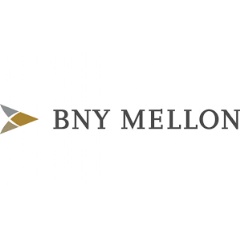New Research from Eagle Investment Systems and Hegarty Group Specifies How Buy-Side Firms are Leveraging Disruptive Technology
As big data, robotic process automation, artificial intelligence, machine learning and other new technologies are increasingly incorporated into existing workflows, the demand for a centralized, next-generation data platform is becoming more pronounced.
Eagle Investment Systems LLC, a BNY Mellon company, today released its latest research paper in collaboration with fintech consultancy Hegarty Group entitled “Reaping the Benefits of Disruptive Technology.” Through a survey of leading buy-side investment firms, the research outlines the extent to which asset managers are currently leveraging new innovation—ranging from alternative data and robotic process automation (RPA) to artificial intelligence (AI) and machine learning (ML). Beyond documenting the specific use cases for these and other technologies, the paper provides commentary around key considerations and best practices for firms looking to leverage these capabilities.
Through a survey of approximately 100 buy-side operating professionals at Eagle’s ENGAGE18 client conference this spring, “Reaping the Benefits of Disruptive Technology” highlights the many and wide-ranging objectives of organizations pursuing digital transformation. The most commonly cited goals were to reduce the complexity and cost of operations and IT, extract more value from the organization’s data and improve the customer experience.
The survey, conducted in April, also demonstrated that buy-side firms overwhelmingly recognize emerging fintechs not as a potential threat, but rather as a partner or as providing an opportunity for their business that otherwise wouldn’t be available. This would seem to underscore a prevailing preference for open-ended technology platforms that allow for plug-and-play capabilities and can be seamlessly incorporated into a wider ecosystem of solutions.
Other findings include:
- A nearly unanimous 99% of survey respondents said their organization is already using alternative data in some form. This speaks to the influence of the front-office in driving technology decisions and priorities, as eight out of every ten respondents claimed that alternative data was either “core” to their investment process or represented “a strong adjunct” in executing upon their strategy.
- Meanwhile, the use of RPA gravitated toward back-office functions, as reconciliation activities, data cleansing and trade processing represented the three most common uses for RPA. While COOs are increasingly leveraging bots to minimize their organization’s back-office and IT footprints, over-reliance on RPA can introduce new operational complexities compounded by robotic sprawl.
- At this point in the innovation cycle, AI and ML capabilities remain limited to the early adopters, as only 50% of the respondents said that their organization had deployed these technologies. Of those that are utilizing AI or ML, the greatest impact is being realized in portfolio management functions, primarily research, but also in facilitating risk management and investment selection activities. Elsewhere across the enterprise, of those using AI or ML capabilities, nearly a third said the greatest impact was felt in either the back office, client onboarding or sales functions.
- While several obstacles stand in the way of leveraging next-generation technologies such as machine learning, the most notable gating items identified by respondents were the maturity of their existing solutions, organizational interest, and current data hygiene.
“The industry is at a tipping point, driven by the proliferation of data and rapid advances in technology,” notes Hegarty Group Managing Partner and Founder Rob Hegarty, a co-author of the paper. “It used to be that those who didn’t want to be on the cutting edge of technology could take a wait-and-see approach; today, buy-side firms simply have to get their house in order—from a data management perspective and with regards to legacy-system replacement—because to do otherwise puts their business at risk of being left behind.”
“The pace of innovation and change today speaks to why so many asset managers are embracing the extensibility of the cloud,” adds Eagle Investment Systems Chief Technology Officer Steve Taylor, also a co-author. “Through leveraging an open platform and an extensive API framework, firms can seamlessly access multiple technology ecosystems. So while the transformation required can seem overwhelming at the onset, the payoff is a flexible technology infrastructure that evolves with the industry.”
For more information and additional findings, download a copy of the complete report.
( Press Release Image: https://photos.webwire.com/prmedia/6/233486/233486-1.png )
WebWireID233486
This news content was configured by WebWire editorial staff. Linking is permitted.
News Release Distribution and Press Release Distribution Services Provided by WebWire.
